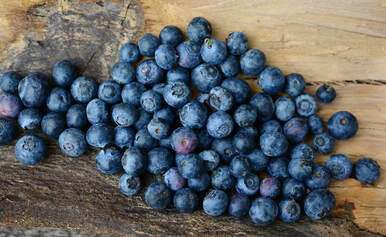 This past year has been huge for me, and at the core of it all was beginning my journey as a student dietitian. Over the past months I went a little quiet on my social media as I was finishing my first year of dietetic training. Once that was up I thought it would be a good idea to take some time to reflect on this year and some of the major lessons learned for me, as well as how I want to continue to shape Marco Mollo Nutrition. This post is part 1 of 3 of a summary of the most important things I have learned and thought about this year. What is a Dietitian? To be honest prior to starting my first year of training I only had a vague idea of what dietitian’s do. Which was interesting looking back on it because I was committing to two more years of study and a few more dollars added to my student loan. There are two points about a dietitian that I think are important to make first. One, that the title “Dietitian” is a protected name, you need to have completed a certain level of study (Masters degree) and be registered within New Zealand to call yourself a dietitian. The second point, contrary to what many people think, dietitians are not the food police who scrutinize and judge your food choices, like when you eat the fairy-bread at kid’s parties. Chances are you’ll probably see me eating some of the fairy-bread at kid’s parties. What a dietitian is trying to do is get a picture of what life is like for you, then from there work, with you, to make achievable changes to your eating habits to promote your health and well-being. As with many professions, dietitians must continually learn and stay up to date to remain registered, so a big part of what the dietitian does is interpret, analyze and appraise what scientific research we have, as well as the new stuff as it comes out and translate that into recommendations for the average Joe. In essence, they make sense of the science, so you can work with them to mould that into realistic behaviors for you to implement. What some people are not aware of is there is a range of different settings you might find a dietitian. Dietitians can consult people 1:1; they can be found on the wards in a hospital; they may work within a foodservice like a residential aged care facility or prison; dietitians work for public health organisations promoting healthy eating or creating educational resources and programmes for communities; they may also give advice on policy. These are just some of the roles a dietitian may have. While I now have a great idea as to what the dietitian does, I think my understanding of the dietitian's role will continue to develop throughout my career. Remaining Within Your Scope of Practice A prerequisite to starting a Masters in Dietetics is having a degree in nutrition. At the conclusion of my nutrition degree I felt this expectation to know everything about nutrition and be able to answer everyone’s questions. I think that is a common feeling we as people have when we’re seen as an expert in a particular field. In reality I didn’t always have an answer, and as I learned this year that is to be expected. From kidney disease, sports nutrition and paediatrics there are many branches within nutrition and for someone to be a true expert in all of them is extremely unrealistic. I have learned this year about where my expertise lies and the boundaries of my scope of practice/knowledge, so I can better serve the people I work with. As this knowledge grew it also became clearer to see where people were stepping outside of their scope of practice, particularly in the health and fitness industry which I will discuss in the last part of this series of posts on Friday. Part 2 will be out tomorrow morning talking about the lessons learned around the mental side of nutrition and evidenced based practice. Thanks for reading. Marco
0 Comments
 I remember as a kid seeing multivitamins advertised on TV. They looked like these super tablets that had these things called vitamins and minerals that would help make my bones strong, give me lots of energy and stop me from getting sick. Mum never actually got me to have them but I remember thinking what are these things? Micronutrients As covered in my last blog post carbs, fat and protein (kind of alcohol too) makeup our MACROnutrients which provide us with energy. Vitamins A, B, C, D, E, K, sodium, calcium, magnesium, zinc, selenium, iodine, potassium, chloride, iron, copper, sodium, phosphorus, fluoride and a few others are our MICROnutrients. Just like our macros, our micros are nutrients, therefore essential for life. However, they are needed in much smaller amounts (mainly milligrams and micrograms) compared to our macros which are needed in grams, hence the name MICROnutrients. Functions Unlike macros, our micronutrients (vitamins and minerals) do not provide us with energy directly. Instead our micros are used for specific functions in the body. Some micronutrients are important for the process of generating energy from our macronutrients, however directly they do not provide us with energy. They can be thought of as the keys to unlocking the energy in our food. There are many different vitamins and minerals and therefore in this blog post I will not be giving an extensive explanation of each of their functions however a list of their main functions are as follows: Vitamins
Minerals and Trace Elements Minerals and trace elements are both inorganic substances however the difference is we need more of our minerals per day and they are in greater quantities in the body compared to our trace elements.
* You will see that a lot of our minerals have functions as electrolytes in our body. Electrolytes are important for maintaining fluid balance in our cells and for other things like nerve impulses. They work together to create a salty environment both in our cells and outside our cells to ensure they can function properly. You could think of our cells as salt water fish that need a salty environment to function properly/survive. Ultra-trace elements: These are needed in really small quantities
Sources There is a range of places we get these micronutrients from. The types of micronutrients and the quantities they are found in are dependant on the food source. For example eggs are intended to develop into an organism therefore they contain a wide range of micronutrients. Most of our micronutrients can be found in varying quantities in different fruits and vegetables.
Do We Need to Take Supplements? In short, most people do not need to take micronutrients as supplements. If you are "healthy" and mostly eating a variety of food from different food groups in the right quantities for you and getting sun exposure throughout, you should not have to supplement. However, supplement use if a very individualized thing. Some people struggle to get in enough of some micros which may lead to a deficiency. If you think you might be deficient in a particular vitamin and mineral then you are better off getting your levels checked before supplementing. Some things to point out:
Having more than enough micronutrients won’t give you super powers and stop you from getting sick therefore there is no need to supplement if you are getting in enough. Consuming vitamin A, C, E, Selenium and folate above the recommended daily intake may provide some additional benefits to health and there are things called suggested dietary targets which are values for these micros that may give us some extra benefit. It will help to optimize the function of those certain processes they are involved in but for example, even if you’re immune system is functioning as well as it can, you can still get sick! There are upper limits for many of our vitamins and minerals too, i.e you can have too much which can have negative effects. For example vitamin A is important during pregnancy for embryonic growth however too much can lead to fetal problems. In most cases the main way of getting too much of a particular vitamin or mineral is through taking supplements or eating products with really concentrated amounts of it. My recommendation going forward would be to ensure over the course of your days you are eating foods from different food groups; as well as looking to eat more of foods that are full of micros like our whole grains, fruits and vegetables, and less of our foods that lack micros like refined grains. In short, don't start cutting things out, don't starve yourself and if you think you might be deficient in something go and see a professional.  I figured the perfect place to start would be with some of the basics of nutrition. So schools in session and we're starting from the top. Energy Energy. We need it. You know that. I know that. Where do we get energy from? Now there are all sorts of ways that people may feel energized; they may drink a cup of coffee, have a cold shower, exercise, meditate but at a physiological level there are only four different things that our body can use to produce energy. The name given to three of these things is MACRONUTRIENT. Said MAC-RO-NUTRIENT. These are sometimes referred to as macros. We get these from food. The three macronutrients are:
Macros I like to think a lot of you reading this would have heard about macronutrients before. For those that haven’t food is made up in varying amounts of these macronutrients. When we eat our body breaks these substances down through digestion into smaller forms of these nutrients where they then get absorbed. After absorption they enter our bloodstream where they are transported around our body. It is these substances that our body uses to make energy to allow us to do anything and everything. Though they may all provide us with energy there are some distinct differences between the three macronutrients. Firstly, the amount of energy they provide is different. Energy is measured in kilojoules (kJ) or calories (kcal). Per gram, fat (also known as lipids) provides us with 9 calories or 37 kJ, whereas carbohydrate and protein provide us with 4 kilocalories or around 16-17 kJ per gram. As well as providing us with energy these macronutrients also have other functions in our body. Fat is needed for hormone regulation, cell function and the absorption of fat-soluble vitamins and antioxidants. Protein is needed for muscle, skin, nail and hair maintenance and growth; proper functioning of our organs; immune function; hormones, enzymes and transport of substances within our blood. Carbohydrates are used to maintain our blood glucose or blood sugar levels and are normally where we get most of our energy from. Fiber is also a type a carbohydrate however our body doesn't break it down well; therefore it provides very minimal energy. Fiber is really important however for our gut health, keeping us regular and helping to keep us full. In terms of storage in our body fat is stored as, well, fat. Carbohydrates are stored first in our muscle and liver as a substance called glycogen. As our glycogen stores start to fill up excess amounts of carbohydrate can also be stored as fat. Protein has no specific storage form so if it is not needed it can be converted either into a form of carbohydrate or fat/lipid. There is one other substance that our body can use to derive energy and that is alcohol (ethanol). Alcohol provides us with 7 calories or 29 kJ per gram. However, it is not considered a macronutrient as we do not need it. Closing Comment Now the purpose of this post was to give a brief overview of the macronutrients and explain where we get energy from. I also want to make one other point clear and perhaps this is the first thing I can remove some confusion around. No one macronutrient is inherently bad (alcohol is not recommended but this isn’t really a macronutrient). I will save the fat vs carbs discussion for another post but just know that specific macronutrients should not be demonized. You should eat fat, you should eat carbs and you should eat protein. The ratios in which we need these will be different from person to person, but everyone should be having some of each. Thanks for reading. Happy Friday! Marco It is one of the first things we ever need, we struggle without it, many obsess about it, some take it for granted, some would give anything for it. Food, nutrition, sustenance. It is at the core of our being, yet we hardly even skip over it in primary school and it sometimes gets a mention at secondary school. Other than that when do we learn what we’re meant to eat? It's yet another task lumped onto our parents who themselves may be confused and unsure. For something so important to our lives, so little of our lives are spent learning about it.
From a young age I had a curiosity for nutrition, so I was determined to learn how this whole food thing worked. This curiosity stemmed from my dad who had this thing called diabetes. It meant he had to take medication to stop his diabetes from getting worse and he couldn’t eat certain types of food because if he did he would get sick. That is how I understood it back then. Now as I got older and learned to read, write and use the internet I started to do my own research. I would read books and blog posts, watched videos and TV series trying to get my head around this condition. Looking back I definitely learned a lot about food, but I was never really sure what I should be telling dad to eat. I always just told him not to eat stuff, and never really said he should eat. Through secondary school as I started to realize that maybe I wasn’t going to make the All Blacks straight out of school I was thinking about what I wanted to do after school had finished. I was a top economics and accounting student through secondary school, so it would make sense that I would stay in Wellington, save money, check in my commerce scholarship to help pay for my studies and then get a job doing something related to finance. I had this other idea though of being a dietitian. I had read a lot about nutrition trying to get my head around dad’s condition and was interested in nutrition from a performance perspective, trying to figure out what I needed to eat so I could make the ABs! I spoke with our course adviser and we laid out the options. Commerce, probably finance, three to four years, in Wellington, job prospects were good, pay was good. The other option was become a dietitian. That would involve moving out of Wellington, studying for five years, job prospects were bad, average pay, mainly a female profession and a chance I don’t even get accepted into the course after three years of study. The course adviser directed me one way, I went the other way and have never looked back. Now, three years after I made the move to study to become a dietitian I have started Marco Mollo Nutrition! I have completed my Bachelors of Science in Human Nutrition and have started helping people within my scope with their nutrition needs. I am also returning to the University of Otago to start my Masters in Dietetics this year to become a registered dietitian in New Zealand. One degree completed and another to go I definitely have a much better grasp of diabetes and nutrition in general than the young boy trying to work out how he could help dad. However, I want to make a point that I wish that boy knew. At no point will you know it all. Nutrition is a constantly evolving field and a relatively young science. We know some things, but not everything. I cannot claim nor can anyone else claim to know it all when it comes to nutrition. However, Marco Mollo Nutrition will operate to help you with your nutrition goals, share the things we do know, make known the mistakes made, and provide insight into a topic that without asking about we could spend our entire lives without proper education on. Thanks for reading. Marco |
AuthorWrite something about yourself. No need to be fancy, just an overview. Archives
November 2020
Categories |
